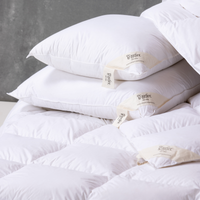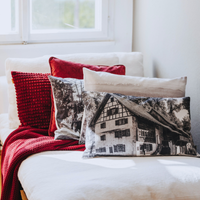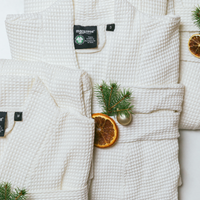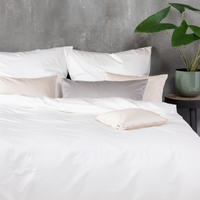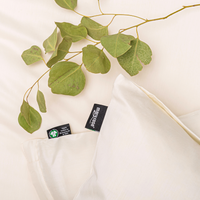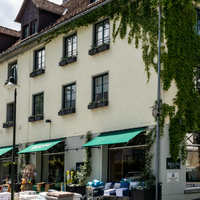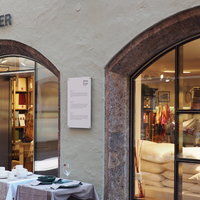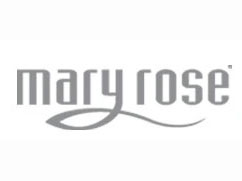Seamlessly sustainable
The small white T-shirt with the green background can be found more and more often on labels on home textiles and clothing from global players in sustainable fashion.
The first GOTS label appeared on the woven labels of our home textiles in 2011, after we were successfully audited by GOTS. It can now be found on 80% of Mary Rose cotton products.
We have been using organic cotton since 1994. In this blog post, we would like to explain what prompted us to follow the GOTS standard.

What is the GOTS, what does GOTS mean?
GOTS stands for Global Organic Textile Standard. Quasi organic quality for textiles. But it is about more than just growing the fibre.
The Global Organic Textile Standard, GOTS for short, is not only the world's leading and recognized sustainability standard for organic textiles, including all processing steps along the value chain - from the initial processing of raw materials (such as organic cotton or organic wool) to the finished products, such as clothing, home textiles and hygiene products in retail.
GOTS also sets strict environmental, human rights and social criteria for the entire textile supply chain, from the responsible treatment of raw organic fibers after harvesting to the labeling of the final product. GOTS is designed to embody sustainability, transparency and ethical practices in the textile industry.
GOTS-accredited independent certifiers carry out on-site inspections of processing, manufacturing and trading companies and issue certificates.
So if you see a GOTS label on a textile product, you can be sure that the product meets all the strict criteria for ethical and sustainable production.
BIO = better?
Environment and health
Organic textiles are grown without the use of synthetic pesticides, herbicides or genetically modified organisms (GMOs). This reduces the pollution of soil, water and air with harmful chemicals.
But people also benefit - the risk of skin irritation and allergies is significantly minimized.
Durability and quality of the products
Materials used in organic textiles produce high-quality, long-lasting products that are easier to maintain with the right care.
Since no harmful pesticides are used in the cultivation of organic textiles, the fibers are not contaminated by residues of these chemicals. This can contribute to a clean and healthy texture of the fabrics.

Getting to the root of the problem - How important is a transparent supply chain?
When we talk about the issue of child and forced labor, for most European people this is a problem that is far away. But the truth is that we have a direct influence on the issue through the textiles we buy.
The issue of child labor is a very good illustration of how important a strictly transparent supply chain is. Even if the product is manufactured in a company that does not tolerate child labor, it is still possible that the cotton used to produce the textiles comes from a country or factory where child labor is very much the order of the day.
A crucial step in preventing child and forced labor is to make supply chains transparent. GOTS requires companies to disclose the entire production chain, from the extraction of raw materials to the end product. This enables complete traceability and helps to identify and eliminate unethical practices.

What else connects us with GOTS
Transformation, progressive process and change. These are all keywords that are firmly anchored in our company's sustainability philosophy. We found these indicators strongly represented in the Organic - in conversion program of GOTS. In this program, farmers who want to convert from conventional to organic farming are supported by companies to ensure that the process, which usually takes three years, is also economically successful.
Sustainable management means rethinking and this leads to many changes that can be very cost-intensive. The economic yield does not grow in parallel with the process of environmentally friendly management.
We are familiar with this problem because we have been in the process of transformation for many years and have already had to deal with a few setbacks. Despite all this, protecting the environment - and we don't just include nature in this, but also people, who are a very important component for us - is always our top priority.
Guided by the idea that we want to be part of the solution and not part of the problem, we always rise to the challenge and are proud of the progress we have been able to achieve so far with the help of innovative production techniques and the added value of traditional processes and ideas.
The fact that we are able to follow this path together with our customers and suppliers gives us a positive outlook for the future.

 Fast delivery
Fast delivery Co2-neutral shipping
Co2-neutral shipping Sustainable production
Sustainable production